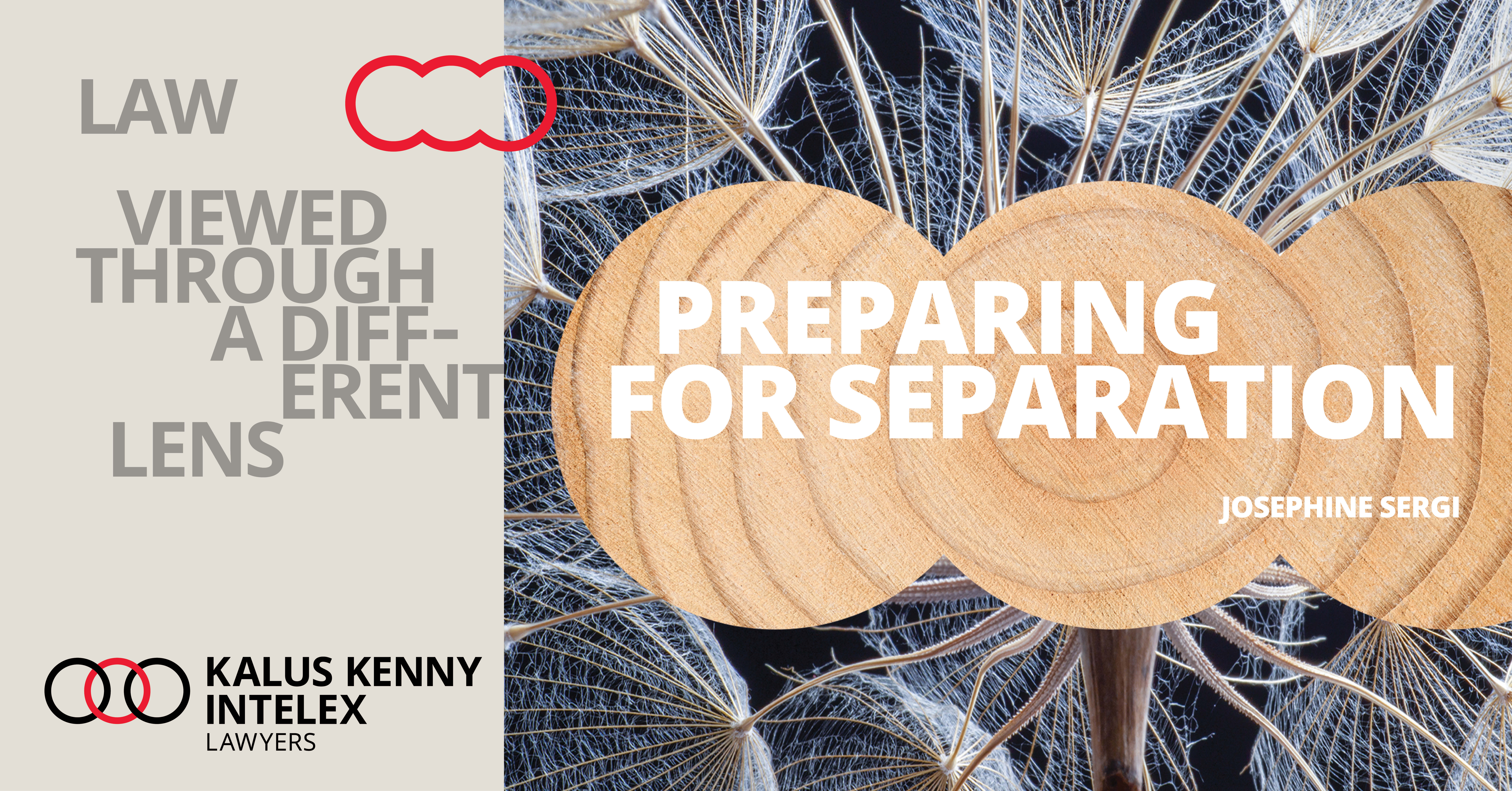Covid lockdowns have impacted all of our lives in ways we could never have imagined, bringing people to question what is important in their lives, what they want for their future, and make some “life is too short” type big decisions.
This soul-searching, and having spent months in the constant company of a partner where relationship and personality flaws are magnified, has inevitably resulted – and as we come out of yet another lockdown, continue to result in – an increase in relationship breakdowns.
The decision to separate is, however, only the first step.
Untangling a united and combined life into two separate ones is rarely easy – emotionally or practically. When there are children involved, this is even more difficult.
There are, however, things that parties, either by themselves or with the help of their trusted advisors, can do to make this process a little less difficult, and be prepared for whatever follows.
Start at the end
Ask “what do I want things to look like once everything is finalised” – whether this is in relation to financial matters or parenting arrangements.
It is not uncommon for people to separate and not consider their long term objectives when simply dealing with the immediate issues of separation are burdensome enough.
Reality test
It is important to ‘reality test’ those expectations or goals by getting advice from a family lawyer, accountant and/or financial adviser.
Having unrealistic expectations often makes the process much more difficult, and leads to disappointment and frustration.
Parties will often feel unnecessary or premature to obtain this kind of advice so early – thinking it will be done when they are ready to take steps to formalise things. However, having unrealistic expectations from the outset and throughout the process can lead to a prolonged, higher conflict and more expensive separation process.
Set things up
Often, initial decisions about the logistics following separation are made emotionally – whether this be out of guilt, anger or sadness. These kinds of decisions can often be counterproductive to achieving the long term objectives.
Some examples of these emotionally-charged decisions which can have a significant impact on the longer term outcomes and influence the trajectory and outcome of the separation process are:
- Which party moves out of the former family home;
- Dealing with finances or assets (or not) which may be able to be utilised productively in the context of separation, or dealing with them in a manner which may be considered to be an attempt to defeat the claim of the other party;
- Making decisions in relation to parenting matters and the manner of communicating with the other party, without understanding the potential consequences.
Again, getting the right advice early is key to understanding the potential consequences of decisions made in the context of separation, both in the short and long term, and how these decisions will work toward achieving the long term goals.



